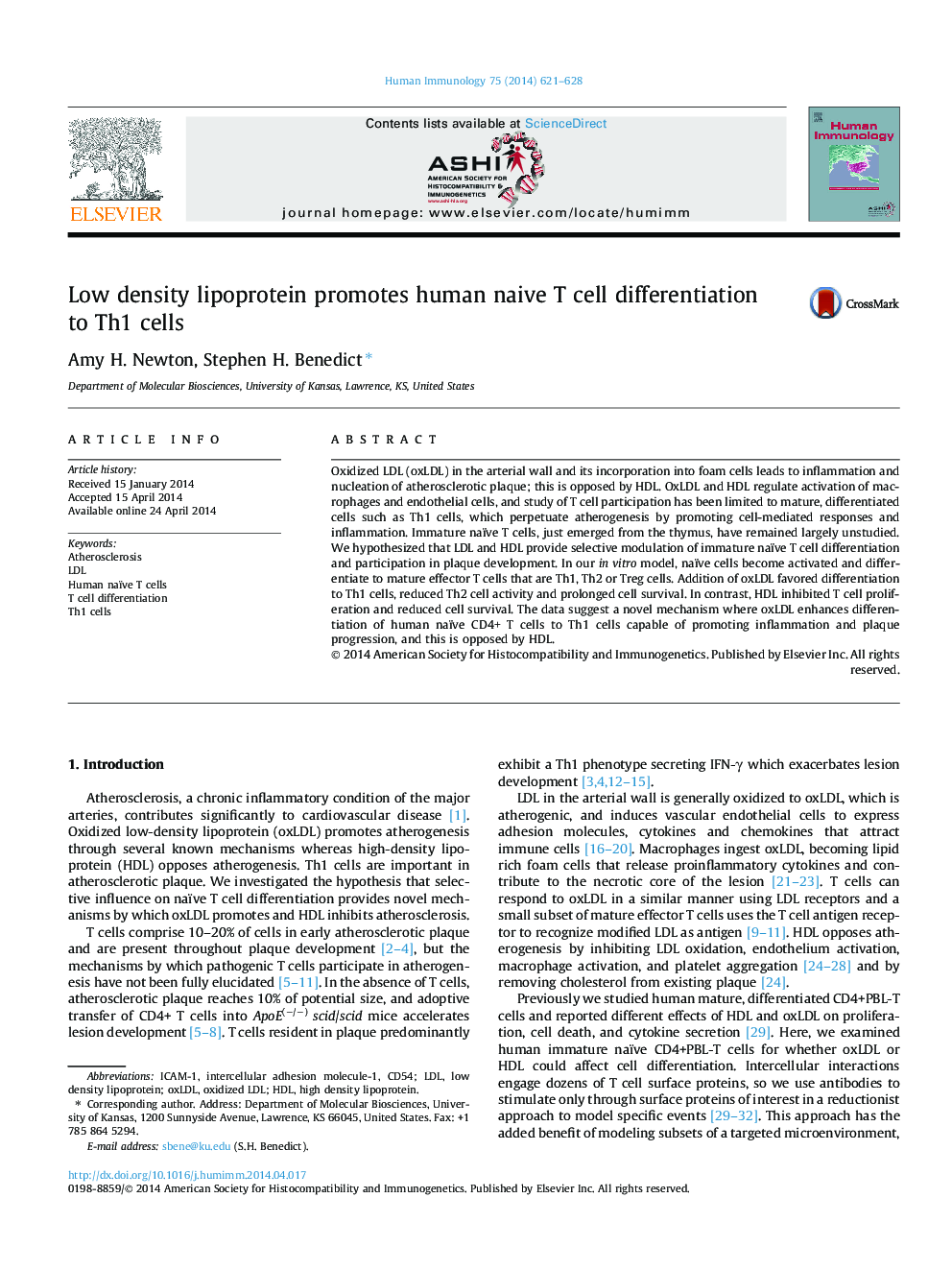| Article ID | Journal | Published Year | Pages | File Type |
|---|---|---|---|---|
| 3350394 | Human Immunology | 2014 | 8 Pages |
Oxidized LDL (oxLDL) in the arterial wall and its incorporation into foam cells leads to inflammation and nucleation of atherosclerotic plaque; this is opposed by HDL. OxLDL and HDL regulate activation of macrophages and endothelial cells, and study of T cell participation has been limited to mature, differentiated cells such as Th1 cells, which perpetuate atherogenesis by promoting cell-mediated responses and inflammation. Immature naïve T cells, just emerged from the thymus, have remained largely unstudied. We hypothesized that LDL and HDL provide selective modulation of immature naïve T cell differentiation and participation in plaque development. In our in vitro model, naïve cells become activated and differentiate to mature effector T cells that are Th1, Th2 or Treg cells. Addition of oxLDL favored differentiation to Th1 cells, reduced Th2 cell activity and prolonged cell survival. In contrast, HDL inhibited T cell proliferation and reduced cell survival. The data suggest a novel mechanism where oxLDL enhances differentiation of human naïve CD4+ T cells to Th1 cells capable of promoting inflammation and plaque progression, and this is opposed by HDL.
